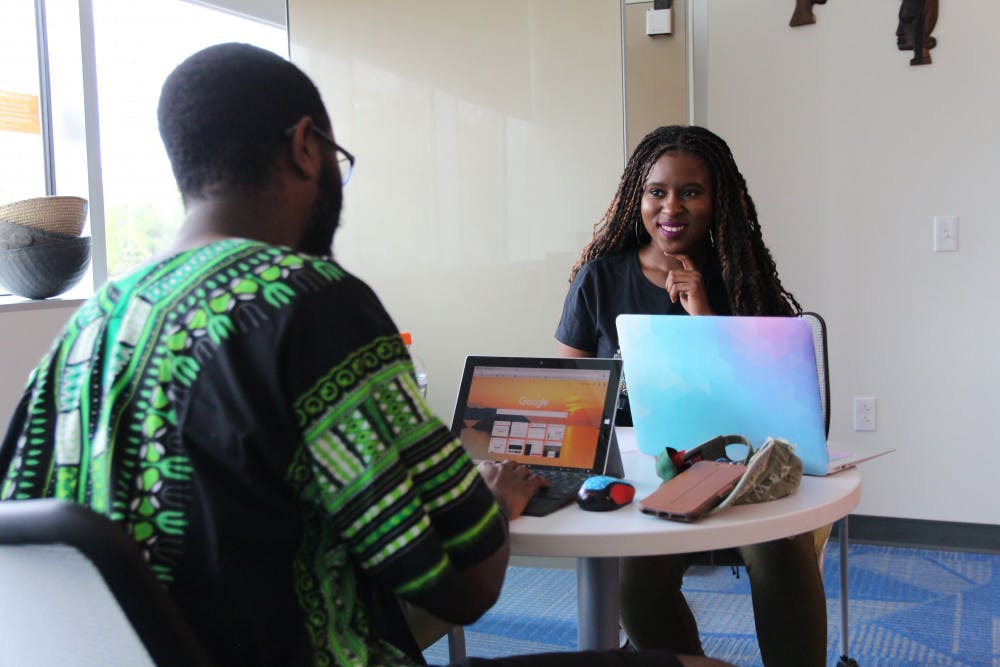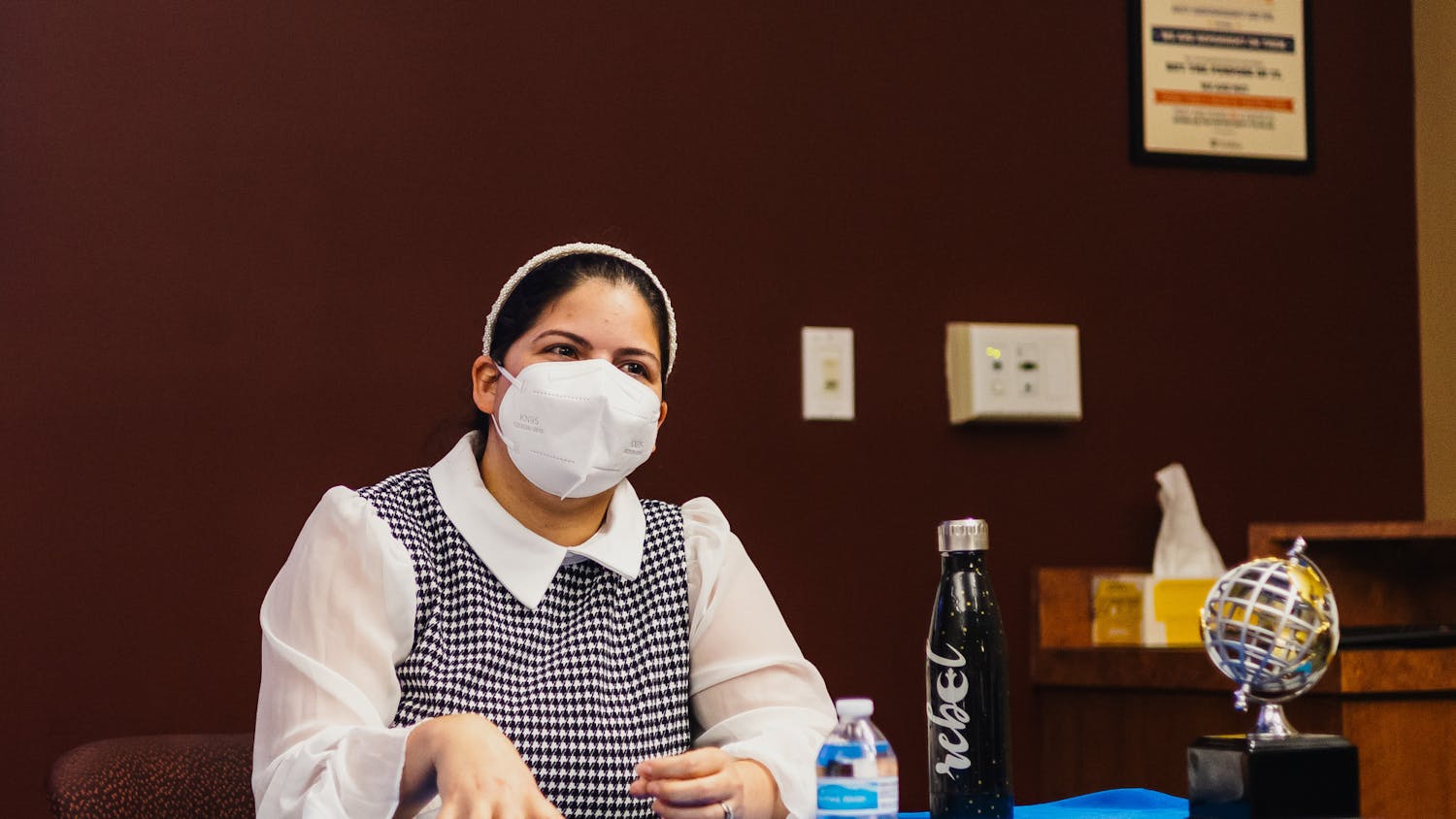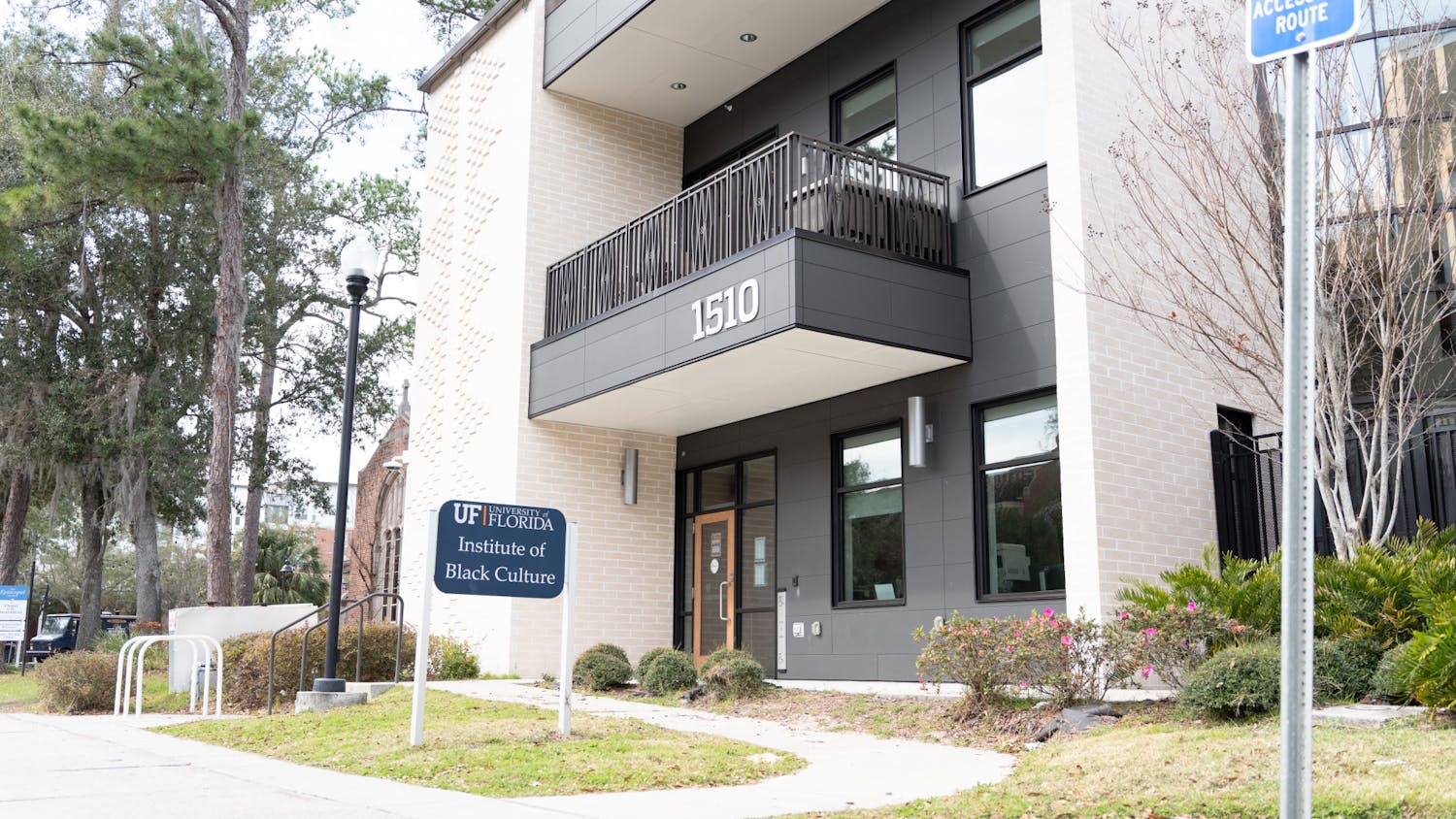A noose in Weimer Hall. Slurs on a whiteboard. Richard Spencer.
One racially charged incident after another, and Bianka Ramirez’s perception of UF was changing. So she sought answers.
Where could students of color, like herself, go to feel safe? Where could they find people who let them feel confused, angry or alone — together?
“It was like something woke up in me,” Ramirez said.
She soon learned the place she sought, a two-story wooden building that stood along West University Avenue, was demolished in August. Now the space is an empty lot encased by green mesh, littered with Bud Light cans and crabgrass, awaiting a $7.8 million reconstruction.
The Institutes of Hispanic-Latino Cultures, commonly known as La Casita, and the Institute of Black Culture, known as the IBC, were some of the first spaces at UF dedicated to racial identity. Now demolished and a year behind reconstruction schedule, some students like Ramirez feel pressured to keep memories alive.
The 90-year-old buildings, crumbling and termite-infested by the time of their demolition, had hard-fought histories that students like Ramirez worry won’t be passed down, especially as more students who never learned about the old spaces come in.
On April 15, 1971, more than a decade after UF desegregated, black students planned a peaceful protest to occupy UF President Stephen O’Connell’s office and demand an African American cultural space on campus, but the demonstration quickly escalated when a rock was thrown and police were called, according to Alligator archives.
By the end, 66 students were arrested, many of whom were either expelled or left school. Ten months later in February 1972, O’Connell formally dedicated the Institute of Black Culture.
La Casita, founded in May 1994, was given by the university unfurnished, leaving its student founders to fend and piece together the home on their own, according to Alligator archives.
Ramirez worries the university isn’t doing enough to pass on the legacy. Currently, most students rely on word of mouth, she said.
“We need more of an institutional memory,” she said.
The last time students were allowed in the buildings was December 2016. In the meantime, students have been using La Salita or the Black Enrichment Center, spaces within UF’s Multicultural and Diversity Affairs, on the second floor of the Reitz Union.
Kalimah Ujaama, a UF political science and African American studies junior, said she went to the IBC nearly every day before it closed and still visits the office space in the Reitz.
Ujaama said the absence of the house gives more power to MCDA because the longer it takes to build, the further removed incoming students are from the history.
“It’s kind of like slave logic to be honest,” the 22-year-old said. “It’s not with malicious intent, but it something that’s being created by the lack of urgency.”
When she can, Ujaama tries to tell younger students about the history of the old buildings.
The buildings’ histories haven’t been formally taught until this Spring through a course titled Black and Latinx History of the Gator Nation, said Ryan Morini, the associate director of the Samuel Proctor Oral History program and professor of the class.
“To be blunt, UF has been afraid of confronting its history,” Morini said. “We’ve gotten some support in specific places, but I wouldn’t say this institution as a whole has been supporting it.”
Will Atkins, the senior director for Multicultural and Diversity Affairs, said his office and UF’s administration are working to make the construction process as transparent as possible. The office faced backlash in June 2017 when they pitched combining the two cultural spaces into one building.
The proposal sparked “No La IBCita,” a student movement that fought to keep the houses separate. In July 2017, MCDA announced the buildings would stay separate — but the redesign would setback the project nearly a year, according to Alligator archives.
UF never set a specific start date for the construction, but it’s expected to start this Summer and finish in about a year, Atkins said.
Since October, the office has held eight interactive feedback sessions with students and the architectural firm designing the institutes, DLR Group.
The process went on longer because proposals went over budget, which Atkins said was expected. He said they wanted to listen to all student suggestions, then go back and adjust.
“We want to do it right, and we don’t want to rush through it,” he said.
Beaudelaine Mesadieu, a UF construction management and interior design freshman, joined the project committee to get more experience. She said there aren’t as many freshmen who go to planning meetings compared to upperclassmen who knew the old institutes.
At meetings, students can spend up to three hours debating color schemes and room arrangement, she said.
“I’m not so emotionally attached, so I’m not so biased with it,” Mesadieu said.
While the designs await approval for construction, many younger students continue to find comfort and a sense of home in the Reitz Union offices.
Keanna Nembhard, a UF political science freshman, said the Black Enrichment Center helped her transition to UF, the first predominantly white institution she attended.
“I was really concerned about having a community here or feeling included,” Nembhard said.
Before arriving on campus in August, much of what she knows about the IBC came from the outraged “No La IBCita” movement she saw on Twitter. It showed her how important the spaces were to some people, she said.
David Rojas, a UF biomedical engineering senior who used to frequent La Casita, said he thinks the office in the Reitz is serving current Hispanic and Latino students.
He said after the protests, the tears and sense of loss, everyone had to return to their schoolwork, seniors had to prepare to graduate and people had to leave behind the building that once was.
“The reality is that we do have to move on with our lives,” he said.
Now, Rojas, 21, claims the same gray desk in the Reitz Union space, nestled against the room’s far wall, nearly every Monday and Wednesday.
When he looks up from his biochemistry book, he sees freshmen Mauricio Perez Rodriguez and Mayra Rodriguez laughing about the day, or stressing about their class registration. He sees Alberto Barcenas napping on the room’s blue carpet, which he insists is more comfortable than the couches.
He knows there are still old friends who haven’t stopped by the office, either too busy or too angry with how things ended — with how things are going.
But Rojas doesn’t blame them. They’re attached to the old building, he said. And he hopes the newer students will find their home, whether it’s in the office spaces now or the future building.
Contact Elliott Nasby at enasby@alligator.org. Follow him on Twitter at @_ElohEl.
Daniel Clayton, 23, UF electrical engineering senior, speaks to Ashley Marceus, 21, UF triple major in political science, African American studies and women’s studies third year about organizational planning inside the Black Enrichment Center on Tuesday afternoon.





